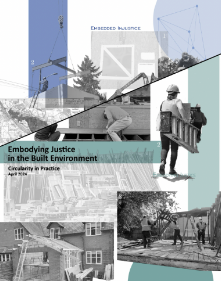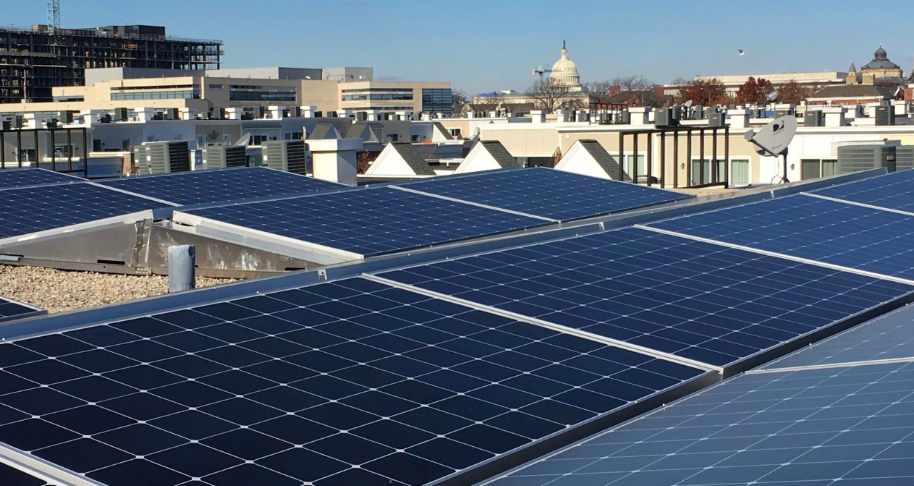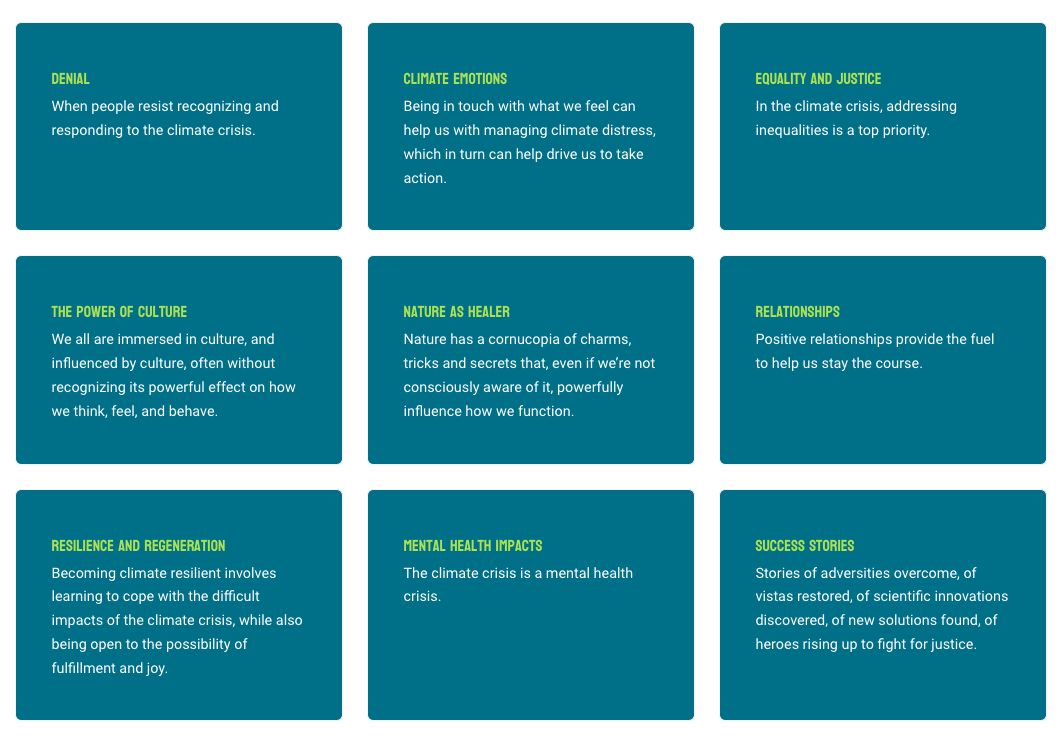Resources
Search below for resources covering the intersection of climate engagement, social science and data analytics.
RESULTS
Guide for Embodying Justice in the Built Environment: Circularity in Practice
This guide and workbook explores justice principles and provides a framework for centering justice in embodied carbon policies and planning. Exploratory questions, designed as a workbook, guide the user through a process which centers meaningful community engagement in considering social, economic, and labor impacts and opportunities rooted in an understanding of the local historical context. Practical examples of strategies which embody justice provide insights and inspiration.
Pathways to Power Workshop
How are you measuring your organization’s efforts and advances towards meaningful long-term change? Would you like to begin the process of identifying a unique set of metrics that best suit your organizational goals and power-building strategies?
The Federal Funding Primer on Climate Justice
This Federal Funding Primer on Climate Justice provides an invaluable roadmap for navigating the maze of funding opportunities provided by Justice40, the Inflation Reduction Act (IRA), and Bipartisan Infrastructure Law (BIL). The Justice40 Initiative is a requirement of Executive Order 14008 and mandates that 40 percent of the benefits from environmental and climate justice related federal investments go to communities that are disadvantaged, underserved, or overburdened by pollution.
International Public Opinion on Climate Change: Extreme Weather and Vulnerability, 2023
Large majorities in every country and territory surveyed said they have experienced an extreme weather event. This report describes self-reported public exposure to and preparedness for extreme weather disasters among Facebook users in 73 countries, territories, and geographic groups (hereafter referred to as “areas”) that are classified as “low-emissions” based on both their below-average per-capita CO2 emissions and low per-capita income. Majorities in all countries and territories reported experiencing an extreme weather event.
The 2024 Community Power Scorecard
The 2024 Community Power Scorecard from the Institute for Local Self-Reliance provides a measure of state policies related to energy democracy and utility accountability. State scores suggest lawmakers must take immediate action to improve. Of the 50 states and D.C., only one state scraped an above average grade (a B), 11 hit the C average, 13 received Ds, and 26 states received a failing F grade. This annual scorecard goes beyond greenhouse gas reductions or renewable generation capacity to evaluate how state policies help or hinder local clean energy action.
Unlocking Clean Energy Incentives for Underserved Communities
The Inflation Reduction Act provides an unprecedented opportunity to foster more equitable participation in clean energy development and channel resources into historically marginalized communities. Because of the IRA’s Direct Pay provision, nonprofits, and state, local, and Tribal governments can now access tax credits over 10 years for clean energy projects in underserved communities. This democratizes energy, unlocking the potential for diverse entities across the U.S. to own clean energy assets as a wealth-building opportunity.
Environmental Polling Roundup - January 19th, 2024
This post includes climate and environment headlines, data points, and key takeaways from recent public polls - including a new analysis of the impact of voters’ climate attitudes on the 2020 presidential election results, new polling on electric vehicles, new polling on competitiveness with China on clean energy, and a new analysis of climate justice attitudes across Yale and George Mason’s “Six Americas” segments.
Support for climate justice across Global Warming’s Six Americas
Support for climate justice and recognition of climate disparities vary widely across global warming’s “Six Americas”. More climate-conscious Americans are both much more likely to recognize existing climate disparities and much more likely to support the goals of climate justice than Americans who are less concerned about global warming. However, even among the segments who are most attuned to the issue of climate change, most are not hearing about “climate justice” as a concept. The Alarmed and Concerned segments (who make up 56% of the U.S.
We Can Decarbonize Heavy Industry. Here's How.
Climate pollution from heavy industry has long been deemed "hard-to-abate". That's far from the truth—technological solutions are at hand, and a smart policy agenda can drive industrial decarbonization to put us on track for key climate targets. To get it done, this resource argues that we need to put industry at the center of climate policy and advocacy. For too long, the climate community has left the industrial sector at the bottom of its to-do list.
This resource is a trusted source for current research and thinking on how psychological factors drive the climate crisis, how the worsening crisis affects us psychologically, and what we can do about it. You can browse Ecopsychepedia entries by one of our nine themes: Denial, Climate Emotions, Equality and Justice, the Power of Culture, Nature as Healer, Relationships, Resilience and Regeneration, Mental Health Impacts, and Success Stories.
Pagination
- Page 1
- Next page







